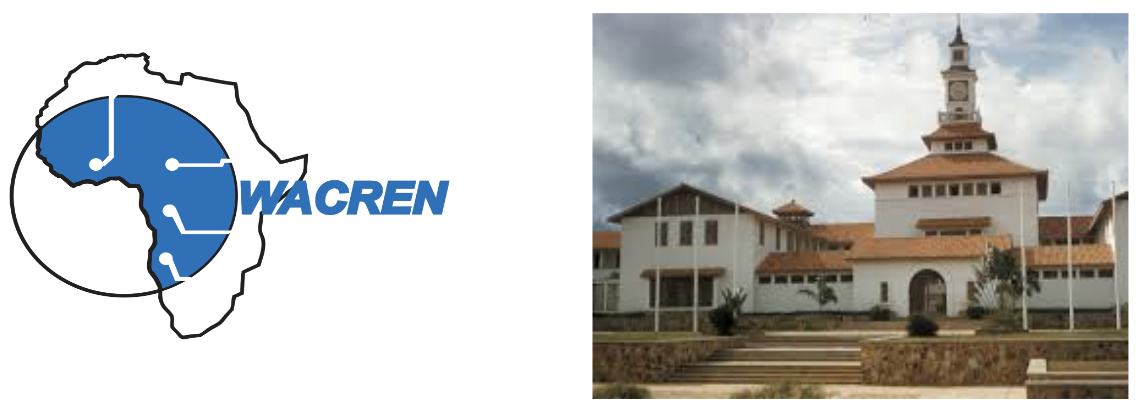ARK Community Highlight: West and Central African Research and Education Network (WACREN)

The West and Central African Research and Education Network (WACREN) is committed to advancing research and education through robust network infrastructure and innovative technological solutions across the region. The University of Ghana Legon and its Balme Library (above), is participating in WACREN along with members from 20 countries. As the association of NRENs in the region, our organisation plays a pivotal role in fostering collaboration and knowledge sharing among academic and research institutions, thus contributing to the socio-economic development of West and Central Africa.
While we are relatively new to utilising ARKs, we have swiftly integrated them into our operations. Specifically, we have developed a software platform dedicated to minting and resolving ARKs, harnessing their unique capabilities to enhance our services and support our organisational goals. The platform is built on arklet-frick, created by developers at The Frick Collection, which itself was originally based on code from the Internet Archive. The open source code for our platform will be made available.
We are pleased to announce the development of our new ARKs Management Dashboard, designed to streamline the management of minted arks with ease and accessibility in mind. Whether you’re new to ARKs or a seasoned user, our user-friendly dashboard empowers you to efficiently manage and track resources assigned to your ARKs without requiring any technical expertise. Providing a centralised space for storing and managing minted ARKs, you can easily view and organise them to ensure efficient resource allocation and utilisation.
In addition to the dashboard’s intuitive functionality, we offer an API that seamlessly integrates with other applications. This API enables developers and users to extend the capabilities of our dashboard, integrate it with existing systems, and automate processes, enhancing workflow efficiency and flexibility.
Our decision to implement ARKs stems from the PIDs roadmap developed under our LIBSENSE initiative. After carefully evaluating various Persistent Identifier (PID) options, we determined that ARKs best suit our needs due to their flexibility, interoperability, and robust resolution mechanisms. These attributes align seamlessly with our organizational requirements, making ARKs the preferred choice.
The adoption of ARKs has significantly transformed the way we work. By incorporating ARKs into our platform, we have streamlined our processes and improved the management and accessibility of digital resources. This has increased efficiency, reduced redundancy, and enhanced discoverability, ultimately empowering our users and facilitating collaboration within the research and education community.
The benefits of utilising ARKs are manifold. They provide a reliable means of persistently identifying digital resources, ensuring long-term accessibility and citation. Additionally, ARKs facilitate interoperability between different systems and platforms, enabling seamless integration and data exchange. Moreover, the robust resolution services associated with ARKs enhance the user experience by delivering accurate and reliable access to resources, thus fostering trust and confidence in our services.
Although we have yet to fully pilot the usage of ARKs with our platform, initial feedback has been positive. Stakeholders have expressed enthusiasm for ARK implementation and anticipate its potential benefits for our organization and the broader research and education community across West and Central Africa. We have integrated ARKs into BAOBAB, our shared repository platform, and will begin pilots with member NRENs in Nigeria, Ghana, and Burkina Faso in the new year.
Recent Posts
- Wrapping up 2025 with 1720 ARK organizations 2025-12-15 by The ARK Alliance
- Invest in Open Infrastructure supports LA Referencia and the dARK initiative 2025-12-11 by Lautaro Matas, Katherine Skinner
- ARK documentation changing to show modern ARKs (ark:) by default instead of classic ARKs (ark:/) 2025-07-28 by The ARK Alliance
- Access to open data at the National Library of France using ARK variants 2025-07-23 by Xavier Levoin, John Kunze
- Arklet-frick: bringing ARKs from need to implementation at the Frick Collection 2024-11-10 by Jack O'Malley
- All Posts